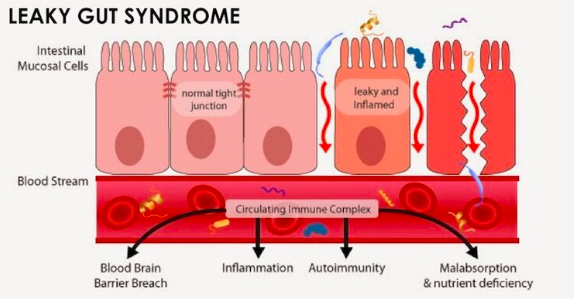Gluten - the good, bad and ugly
Coeliac and gluten ataxia are both rare gluten-related diseases but are becoming more common in society today. It is believed that individuals who are diagnosed with these conditions are the only people who react to gluten therefore without a diagnosis of the above conditions leaves the rest of the population safe to consume as much gluten as possible. This isn’t actually the case and I’ll explain why in further detail.
What exactly is gluten? Well it is the protein constituents that take up a large part of real estate in starchy grains such as wheat, barley and rye. Gluten is a long peptide molecule which when consumed places a bit of a strain on the body. So how does this negatively impact the gastrointestinal system (GIT)? The GIT barrier is made up of tight gap junctions which are spaced evenly to allow for nutrients to enter but also as the name says ‘tight gap’ to then reduce toxins from entering. When gluten comes into contact with the tight gap junction it releases a protein called zonulin which then causes the tight gap junctions to open wider to allow for this large protein (gluten) to enter therefore causing a change in gut permeability and allowing for toxins, bacteria & other unwanted substances to enter the stomach but can also promote loss of nutrients. This occurs in all individuals, whether or not you react to gluten.
Symptoms to look out for:
· Bloating after you’ve eaten
· Abdominal pain
· Change in bowel habits - constipation and/or diarrhoea
· Headaches/brain fog
· Exhaustion/low energy
· Acne/Eczema
· Skin rashes
· Mood change
However, gluten isn’t all bad. Gluten provides a wide range of nutrients for the body such as Magnesium, B Vitamins, Iron and Fibre. I believe that removing a food group when not necessary can do more harm than good. Aside from potential nutrient deficiencies, removal of certain foods or deeming foods as ‘bad’ will encourage a bad relationship with food. Additionally, gluten free products are becoming more and more prominent in the market these days which is great for those who require gluten free. But just because a product is labeled ‘gluten free’ is doesn’t necessarily mean that it is healthy. Gluten free products can be filled with ingredients that can cause similar problems to gluten, so make sure you read the label or speak to a trained professional if you’re not sure about some of the ingredients.
Some individuals (without a gluten related condition) will react more severely than others, which is where a Naturopath can step in and provide assistance to repair the damage and get you back to feeling symptom free without having to remove gluten from your life forever. As always, listen to your body, check in with how it’s feeling as this is the best way to tell what works or what doesn't work for your body.
